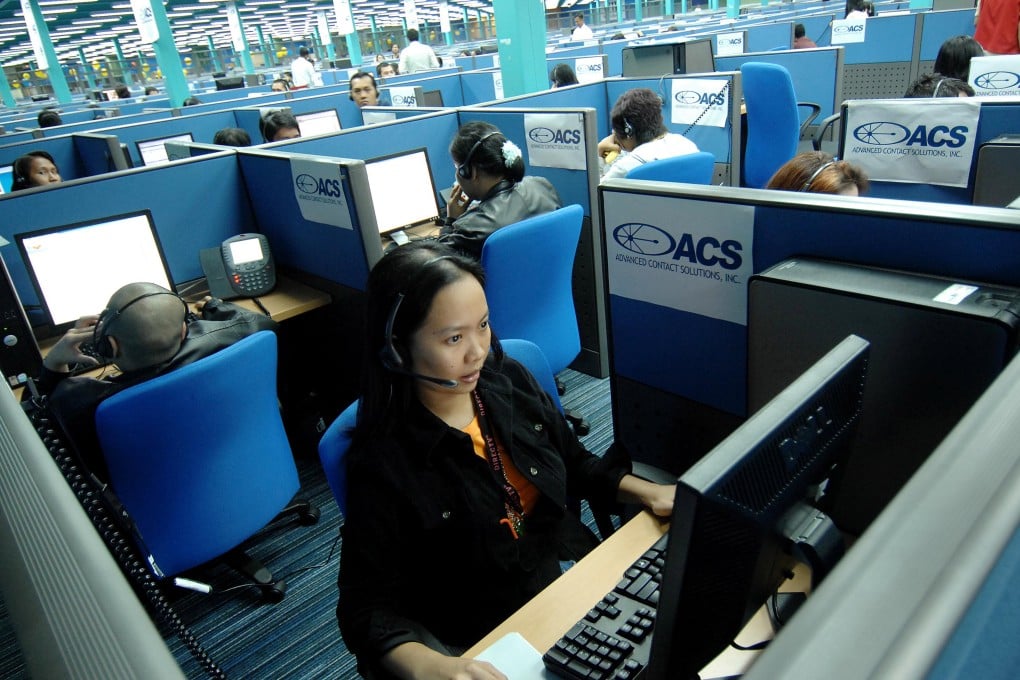Artificial intelligence: friend or foe to Philippine call centre workers?
- Half of the 1.3 million workers in the Philippines’ business process outsourcing industry have low-skill jobs that technology could replace
- But some believe advances in machine learning are an opportunity to upskill, rather than lay off, staff

This is the reality the local business process outsourcing (BPO) industry is coming to terms with, as its two-decade growth is threatened by the emergence of AI systems in companies everywhere.
AI, in this case, is largely identified with its machine learning capability, the technology that can process massive amounts of data in short periods of time.

Half of the 1.3 million people employed in the Philippines’ US$25 billion BPO industry have “low-skill-level” jobs, according to the latest data shared by Information Technology and Business Process Association of the Philippines (IBPAP). These are usually customer service agents that do back-end support for multinational firms, mostly answering calls and processing inquiries. Already, there are programs powered by machine learning that accomplish these tasks in a matter of minutes.
Coupled withincreasingly volatile global trade conditions, the Philippines’ BPO industry has a lot to think about to maintain its pace of growth.
